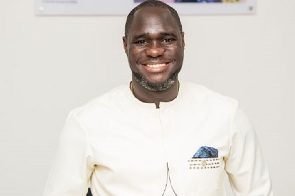In the Revolution Betrayed Trotsky wrote that, under capitalism, ?the productive forces, upon a basis of private property and competition, have been working out their own destiny.
?In contrast to this, the property relations which issued from the socialist revolution are indivisibly bound up with the new state as their repository. The predominance of socialist over petty bourgeois tendencies is guaranteed, not by the automatism of the economy ? we are still far from that ? but by political measures taken by the dictatorship. The character of the economy as a whole thus depends upon the character of the state power.?
But, we don?t have to go to the USSR or China to see how that proletariat dictatorship really plays out. As one writer puts it about Nkrumah?s regime?s efforts to mimic Stalin?s economic paradigm: ?Impatient for results on a spectacular scale, Nkrumah pressed on with one project after another ? with factories, steelworks, mining ventures and shipyards? [After] a long visit that Nkrumah made to the Soviet Union, China and other communist countries in 1961? one after another new state corporations were launched.?
Nkrumah used ?1.8 million (about ?6 million in today?s money) of state resources to build a potentially useful project, Guinea Press. According to a contemporary report, the printing press was used as, ?something of an employment agency with incompetent and inefficient hands being pushed in on the management by this Minister, the Chief, the Party Official, just because that somebody? was the nephew, niece, uncle, brother, son or relative of somebody.? Regardless of his good intentions, that state-run economy idea failed and failed miserably. But, Nkrumah can be forgiven because he probably chose that option because Ghana had at the time not built and mobilised enough local capital. And industrialisation could not wait. But, instead of concentrating on building the private sector the state decided to take it upon itself.
Come the 1980s, we chose the liberalisation route. But, here again we failed to find sustainable ways to build, mobilise and unleash indigenous capital in a revolving manner. It is little wonder that at an IDEG roundtable seminar Tuesday several contributors were calling for more state intervention and calling for the state to get really involved in the business of business. But, we will urge Government to stay on course. Intervene when it feels the deep need to but stay focused on the agenda to make the private sector the engine of growth.
It must be instructive to us that between 1961 and 1966, after Nkrumah had spent the country?s money in investing and setting up industries and building his future headquarters for a ?united? Africa, Ghana was heading into economic difficulties, with growth registering a negative and averaging 2 percent for the 1960s. Yet, by 1966 more than 50 state enterprises had been set up. In the 1980s and 1990s, Mr Rawlings took the other unhelpful route of liberalisation, while folding state enterprises and leaving the economy vulnerable to cheap foreign imports. It was liberalisation without industrialisation.
But, the deeper reason was this: we sought to build a capitalist state without capital. It is not strange that the cream of our economy is now taken over by foreign companies ? from telecommunication, through mining, construction and banking. And, the only way this can change is for a deliberate and conscious effort to improve the capital capacity of the Ghanaian. Home-grown driven growth is sustainable.
Tuesday?s donor conference on private sector development is a good sign of that. But, a lot more needs to be done. We can sustain 8 percent GDP growth rate but we need capital to do so. We need to create the wealth to spread opportunities and companies that repatriate most of their income won?t do it for us. It is time to think Ghanaian first and foremost.
Editorial News of Wednesday, 1 March 2006
Source: Statesman
















